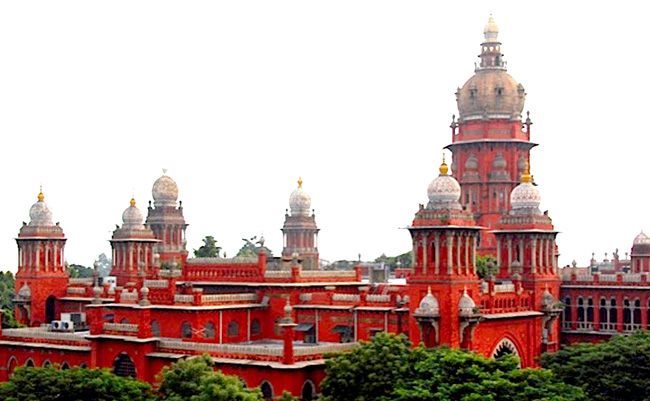A Division Bench of the Madras High Court, comprising of Chief Justice Sanjib Banerjee and Justice Senthilkumar Ramamoorthy in the case of Logeshwar v. State of Tamil Nadu & Ors- observed that the appointment of Chairperson of Tamil Nadu State Human Rights Commission was in consonance with the prescribed procedure and no arbitrariness was found in it.
“As long as the appointee fulfils the eligibility criteria, that would suffice. This is because unlike ordinary appointments, these are crucial posts where appointments are primarily made by invitation. The Selection Committee may discuss such names as they may choose and even if there is no advertisement issued, the process cannot be flawed.”
Factual Background
Justice Baskaran was appointed as the Chairperson of the Tamil Nadu State Human Rights Commission on December 31, 2020. Aggrieved by the appointment the Petitioner named Logeshwar argued that Justice Baskaran's appointment as the Chairperson of TN Human Rights Commission was violative of Article 14 (right to right to equality) and 16 (equality of opportunity in matters of public employment) of the Indian Constitution.
He further contended that the office of the Chairman of the State Human Rights Commission is an office under the State which falls under the ambit of Article 16(1) of the Constitution and to fill up such post, all eligible persons should have been given an opportunity to apply therefore and should have been considered.
He placed reliance on the case of Rojer Mathew v. South Indian Bank, in which the Apex Court held that frequent appointment of Judges (sitting or retired), in a non-transparent manner.
Therefore, the Petition was filed under Article 226 of the Constitution of India for issuance of a Writ of Declaration declaring the G.O.(Ms.) No.701 dated 30.12.2020 issued by the 1st respondent appointing the 3rd respondent to the post of chairperson in the 2nd respondent commission as null and void, unconstitutional, illegal, and arbitrary exercise of powers on the part of the 1st respondent and consequently direct the 1st respondent to invite all eligible and suitable persons to offer their candidature and consider their merit on a rational basis and appoint the most suitable person.
Court Reasoning and Judgment
At the first glance, the Court stated that the present petition was utterly misconceived and no further time should be wasted thereon and expressed that:
“These frivolous matters tend to take up substantial Court time and, more often than not, counsel furthering hopeless causes tend to dilate and seek to rely on judgments that may have no bearing on the issue at hand.”
The Court found two arguments which the petitioner made- (a). that the office of the Chairman of the State Human Rights Commission was an office under the State within the meaning of Article 16(1) of the Constitution and to fill up such post, all eligible persons should have been given an opportunity to apply therefore and should have been considered on merits, and (b) that the post was not advertised.
With respect to the first argument, the Court expressed that:
Appointment of Chairman of the State Human Rights Commission was done with consonance in Section 22 of Protection of Human Rights Act, 1993.
Section 22(1) of the Act entails a selection committee comprises of
1- Chief Minister,
2- Speaker of the Legislative Assembly,
3- the Minister in-charge of the Department of Home in that State,
4- the Leader of the Opposition in the Legislative Assembly
However, if a State has a Legislative Council, the Chairperson of such Council and the Leader of the Opposition in the Council is also ex-officio members of the Selection Committee. The Chief Minister of the State is the Chairperson of the Selection Committee."
With respect to the second argument, the Court asserted that the statute did not require any advertisement, in this case, there was an exalted Selection Committee which was ordained by the statute and it was not an ordinary process of selection.
"As long as the appointee fulfils the eligibility criteria, that would suffice. This is because unlike ordinary appointments, these are crucial posts where appointments are primarily made by invitation. The Selection Committee may discuss such names as they may choose and even if there is no advertisement issued, the process cannot be flawed."
Therefore, the Court disposed of the Writ Petition without imposing any cost on it.
Case Details
Case: W.P.No.3387 of 2021
Petitioner – Logeshwar
Respondent – State of Tamil Nadu & Ors
Counsel for the Petitioner – Mr.A.Sirajudeen
Counsel for the Respondent – Mr.Vijay Narayan, Mr.V.Jayaprakash Narayanan,
Quorum: Chief Justice Sanjib Banerjee and Justice Senthilkumar Ramamoorthy
Read Order@LatestLaws.com
Share this Document :Picture Source :


























